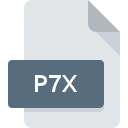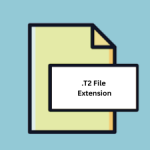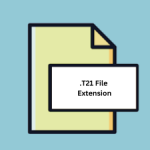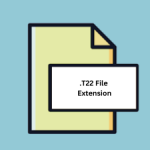.P7X File Extension

Packed Digital Signature File
| Developer | Microsoft |
| Popularity | |
| Category | Data Files |
| Format | .P7X |
| Cross Platform | Update Soon |
What is an P7X file?
.P7X files are digital signature files commonly used to ensure the authenticity, integrity, and non-repudiation of electronic documents.
They encapsulate digital signatures, certificates, and other cryptographic information necessary to verify the identity of the signer and the integrity of the signed content.
Essentially, they serve as a seal of authenticity for digital documents, making them essential in various industries, including finance, legal, and government sectors.
More Information.
The history of .P7X files traces back to the evolution of digital signatures and the need for standardized formats to encapsulate cryptographic data.
Initially, digital signatures were often implemented using various proprietary formats, leading to interoperability issues and security concerns.
The introduction of .P7X files aimed to address these challenges by providing a standardized container format for digital signatures, enhancing compatibility and security across different systems and applications.
Origin Of This File.
The .P7X file format emerged as part of the Public Key Infrastructure (PKI) framework, which provides a secure method for exchanging information over insecure networks, such as the internet.
PKI relies on cryptographic techniques to facilitate secure communication, with digital signatures being a fundamental component.
.P7X files were introduced to streamline the process of attaching digital signatures to electronic documents securely.
File Structure Technical Specification.
.P7X files adhere to the PKCS#7 (Public Key Cryptography Standards #7) specification, which defines the syntax and structure for cryptographic messages.
The structure of a .P7X file typically consists of the following components:
- Signed Data: Contains the original document or data and its digital signature.
- Certificates: Includes digital certificates used to verify the authenticity of the signer’s identity.
- Certificate Revocation Lists (CRLs): Lists of revoked certificates, ensuring that signatures are not validated using compromised credentials.
- Other Optional Components: Additional information such as timestamps, signer attributes, and cryptographic algorithms may be included depending on the specific requirements of the signature.
.P7X files leverage various cryptographic algorithms, including RSA, DSA, and ECC, to ensure the security and integrity of the digital signatures they encapsulate. Additionally, they support different signature formats, such as detached and enveloped signatures, offering flexibility in signature deployment.
How to Convert the File?
Converting .P7X files to other formats or vice versa typically involves extracting the digital signature and associated data from the .P7X container. Several software tools and libraries are available for performing this conversion, including:
- OpenSSL: A widely-used open-source cryptographic library that supports the extraction and manipulation of .P7X files.
- Online Conversion Tools: Various online platforms offer conversion services for .P7X files, allowing users to convert them to formats such as PDF or XML.
- Third-Party Software: Commercial software applications designed for digital signature management may include features for converting .P7X files to different formats.
When converting .P7X files, it’s crucial to ensure that the integrity and authenticity of the digital signatures are preserved throughout the process to maintain the document’s validity.
Advantages And Disadvantages.
Advantages:
- Security: They provide robust cryptographic protection, ensuring the integrity and authenticity of signed documents.
- Interoperability: .P7X files are supported by various software applications and platforms, enhancing interoperability and cross-platform compatibility.
- Non-repudiation: Digital signatures embedded within .P7X files offer strong non-repudiation, meaning signers cannot deny their involvement in the signing process.
Disadvantages:
- Complexity: Working with .P7X files may require a certain level of technical expertise due to the complexity of cryptographic operations involved.
- File Size: Depending on the size of the signed data and additional cryptographic components, .P7X files can be relatively large, which may impact transmission and storage efficiency.
- Dependency on Certificate Authorities: The verification of digital signatures within .P7X files relies on the trustworthiness of certificate authorities, making it essential to ensure the integrity of certificate chains.
How to Open P7X?
Open In Windows
- Use Microsoft Outlook or Adobe Acrobat Reader, both of which support the opening and verification of .P7X files.
- Alternatively, install third-party software specifically designed for managing digital signatures and cryptographic operations.
Open In Linux
- Install OpenSSL or other cryptographic libraries to handle .P7X files via command-line tools.
- Use desktop environments or applications that support digital signature verification, ensuring compatibility with .P7X files.
Open In MAC
- macOS includes built-in support for handling digital signatures and PKCS#7 messages, allowing users to open .P7X files using applications like Preview or Adobe Acrobat Reader.













